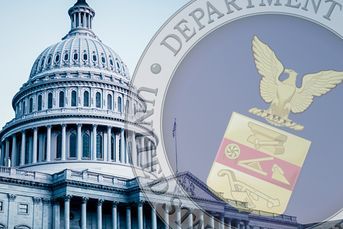Special needs planning experts crave help from generalist peers
Planners should serve where they are truly needed.
“I have the best job in the world,” says Scott Adams, a financial adviser and founder of the Special Needs Planning Center.
If Mr. Adams gets such satisfaction helping special needs families plan for their financial futures, why aren’t more advisers doing it?
Because it’s tough.
As Liz Skinner reports in the game changer feature story this week, advisers who dedicate even a slice of their practice to this specialty describe clipped profits, bulging client loads and emotionally exhausting conversations. Oh, and the planning for these families takes longer in most cases, she found.
But the need is great. And as the financial planning industry evolves from a hodgepodge of businesses into a true profession, practitioners must serve where they are truly needed; they should step up for these families who are desperate for sound guidance — concerned about the lifetime of care their loved ones will need and how to pay for it.
(More: Tips for helping special needs families)
Special needs planning experts — of whom there are estimated to be fewer than 1,000 in the U.S. — describe a heavy burden of shouldering the weight of a large population demanding their services. About 57 million Americans, or 19% of the U.S. population, have a mental or physical disability that may require lifelong planning. Editors also reached out to specialist planners in this field in shaping this story with Ms. Skinner, and the message that came through loud and clear was their plea to the broader industry: Please help.
There are two ways this can happen in a meaningful way.
Generalist advisers can assist special needs families in getting started with the most basic yet fundamental steps. Advisers need not become experts. The main requirement to be able to help with early planning moves is to familiarize yourself with public benefits (and which resources families can turn to for more information on them); legal matters, such as trust documents (or find a local attorney who can provide these); and financial tools to shore up funds (think ABLE accounts, for one.).
Certification bodies can require more special needs planning courses for generalist financial planning designations. While some marks, such as the certified financial planner, don’t require any education on special needs planning (though some instructors include its essentials in an estate planning course), others, such as the certified private wealth adviser and chartered financial consultant, touch on it in broader sessions. The chartered life underwriter offers electives on special needs. All of these designations, and others that train financial planners, could dedicate more of their core education to a planning need that could impact almost one in five of their certificants’ clients.
And let’s not forget that in sharing the demands of serving people with special needs, there is great reward. The financial planning profession will grow stronger as its practitioners learn what it means to be indispensable — a real hero — to these families in need. This is important work, and the challenge before advisers and the profession is to rise to it.
Learn more about reprints and licensing for this article.








